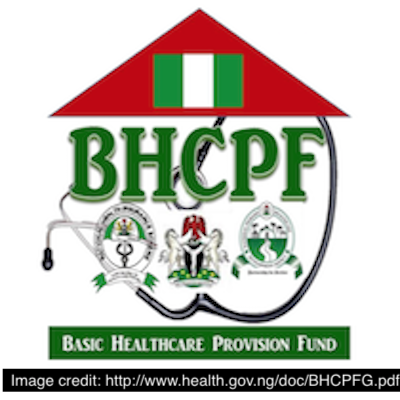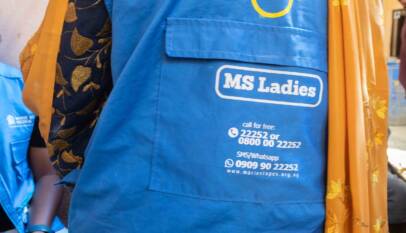As Kano prepares to roll-out Basic Health Care Provision Fund
As one of the first states to have fulfilled the major preconditions for access to the Basic Health Care Provision Fund (BHCPF), Kano state is on the verge of commencement of the operationalization of the BHCPF

The Basic Health Care Provision Fund (BHCPF), a subset of the 2014 National Health Act (NHAct) can be described as the greatest single accomplishment of Nigeria’s quest to achieve health security for especially the poor and vulnerable citizens, necessary for attaining Universal Health Coverage (UHC). Establishment of the BHCPF is provided for in Section 11 of the NHA with funding sources being the Federal Government of Nigeria, respective state governments, international development partners and the organized private sector etc.
Notably, the major funding source for the BHCPF is the not less than 1% of the Consolidated Revenue of the Fund (CRF) of the Federal Government of Nigeria (FGN), as statutorily provided for in the NHAct while the Fund’s major goal is ensuring “adequate and sustainable funding that will be efficiently and equitably used to provide quality health services and ensure financial risk protection in access to health services for all Nigerians, particularly the poor and most vulnerable.”
According to its operations manual, the BHCPF will support the effective delivery of primary healthcare services i.e ensure the provision of a Basic Minimum Package of Health Services (BMPHS) and emergency medical treatment to all Nigerians. In specific terms, the major health priorities of the BHCPF are: Maternal, Reproductive, Newborn, Child, and Adolescent Health and Nutrition (RMNCAH&N); Non-Communicable Diseases (NCDs); as well as screening and emergency services for Road Traffic Injuries (RTIs).
Although the NHA came into being in 2014, the BHCPF was never provided for or rather appropriated in successive annual budgets of the FGN until 2018, thanks to series of strategic advocacies to the National Assembly by civil society groups and most prominently, the Legislative Network for Universal Health Coverage (LNU); whose overall objective is effectively leveraging statutory functions of the legislature in Nigeria for improved health financing towards UHC.
It is worthy of note that even in 2018, the BHCPF was initially not appropriated for in the appropriation bill submitted to the National Assembly by the President; instead had to be included in the federal budget by the National Assembly – to the tune of about 55 billion naira. Finally, in January 2019, the FGN rolled out the BHCPF as a basket fund which included the statutory grant of 1% of the CRF (N55 .1 billion); $2 million from the Bill and Melinda Gates Foundation (BMGF); $20 million from the Global Financing Facility (GFF) and £50 million from the UK Department for International Development (UK-DFID), which will be paid in installments over a five year period.
As one of the first states to have fulfilled the major preconditions for access to the BHCPF, Kano state is on the verge of commencement of the operationalization of the BHCPF. Amongst others, Kano has established the State-Supported Health Insurance Scheme (SSHIS) i.e the Kano State Contributory Healthcare Scheme (KSCHS) as well as its implementing agency, the State Social Health Insurance Agency (SSHIA) i.e the Kano State Contributory Healthcare Management Agency (KSCHMA). Access to care under KSCHC being managed by KSCHMA had commenced since May of 2018.
Moreover, the state had established a State Steering Committee (SSC) headed by the Honourable Commissioner of Health, which is charged with the responsibility of governance for the BHCPF at the state level. According to the operations manual, while the SSC oversees governance for the Fund, the duo of the State Primary Health Care Development Agency (SPHCDA) and SSHIA will be responsible for the day-to-day administration of the Fund as its two funding gateways. The SPHCDA and SSHIA will work closely with Kano’s 44 Local Government Areas (LGAs) through their respective PHC departments to implement the BHCPF at LGA level while the respective LG PHC departments will work with Ward Development Committees (WDCs) to implement the BHCPF at ward level.
Liti Gwarzo Abdullahi, Director, Planning, Research and Statistics (DPRS) at the Kano State Ministry of Health is also the secretary of the State Steering Committee (SSC) for BHCPF in Kano who said the mandate of his Committee, which shall meet at least once quarterly, was overseeing the affairs of the BHCPF in the state including mapping out strategies for its implementation.
“We are to function as the state strategic group promoting collaboration with stakeholders in the implementation of the BHCPF i.e the Kano State Contributory Healthcare Management Agency (KSCHMA) and the Kano State Primary Health Care Management Board (KSPHCMB). We are to review and approve of the annual work plans and budgets of the state implementing agencies (KSCHMA and KSPHCMB) in relation to the BHCPF, before being sent to the federal implementing agencies i.e the National Health Insurance Scheme (NHIS) and National Primary Health Care Development Agency (NPHCDA), respectively. We are to also review updates on funds provided by the NHIS to KSCHMA and funds from NPHCDA to KSPHCMB,” he said.
Abdullahi said the SSC in Kano had since secured the formal assent of Governor Abdullahi Umar Ganduje for the state to participate in the BHCPF adding that Governor Ganduje had also formally written the Honorable Minister of Health and Accountant General of the Federation indicating Kano’s interest and readiness to enroll in the BHPCF as well as requesting for approval to open a domiciliary account in the name of the Kano BHCPF, respectively.
“His Excellency has also approved the release of one hundred million naira counterpart funding which was paid into the dedicated Kano BHPCF account already opened in a commercial bank. We have already commenced assessment of the 484 primary healthcare facilities that would be enrolled as care providers in the BHCPF. We are grateful to our partners, the Maternal Newborn and Child Health (MNCH2) programme for supporting the training of our data collectors. The data collectors are currently going round the 484 PHCs for the assessment exercise,” he said.
The assessment exercise which was supported by UK-DFID-funded Maternal Newborn and Child Health (MNCH2) programme was carried out by the Federal Ministry of Health in collaboration with the Kano State Government. The information collected about the selected PHC facilities for the purpose of their participation in the implementation of the Basic Healthcare Provision Fund included diagnostic accuracy, adherence to guidelines, availability of drugs and minimum equipment as well as readiness of facilities to provide quality services.
Abdulkadir Salisu Kabara is the Kano State Strategic Planning Coordinator for the DFID Funded MNCH2 programme who believes the implementation of the BHPCF will help improve access and availability for healthcare services to most especially the vulnerable group of pregnant women and under-five children in Kano state. He, therefore, describes the passage of NHAct in 2014 which provides for the creation of BHPCF that was subsequently appropriated in the 2018 Federal Government budget as “a very important milestone for the health sector in Nigeria; it provides a legal framework for the regulation and management of the health system, provide additional clarity for standards of rendering health services in the country and also additional funding for the health sector.”
“While the Kano State Primary Health Care Management Board gateway will be the suppliers and responsible for ensuring that the facilities are fully functional in terms of equipment and personnel etc, the Kano State Contributory Healthcare Management Agency (KSCHMA) gateway will be the purchasers responsible for enrolling beneficiaries including members of vulnerable groups (pregnant women and children Under 5 years) in the scheme. The Ward Development Committees (WDCs) will serve as representatives of the community in the BHCPF implementation across all selected PHCs. Therefore, the state need to reactivate the WDCs in facilities were they are inactive and also strengthen those that are currently active to be able to deliver on their mandate of ensuring accountability, community participation and awareness creation,” said Kabara.
“The capacity of PHC departments at LGAs and Facility Management Committee need to also be further strengthened since they will also play a key role of supervision. Therefore, the BHCPF is a great window of opportunity for the state to accelerate the establishment of structures and policies that will go a long way in helping the actualization of Universal Health Coverage in Kano state. However, Kano still needs to also establish a governing board for the Kano State Primary Health Care Management Board (KSPHCMB), which is also a pillar Primary Health Care under one Roof (PHCUOR) and a part of the requirements for BHCPF.”
Salisu Yusuf is the secretary of the Accountability Mechanism for Maternal and Child Health in Kano State (AMMKaS), a coalition of civil society, media and government actors working to ensure accountability in the management of funds meant for maternal and child health in Kano, who believes the implementation of the BHCPF in Kano would go a long way in improving access to maternal and child health at the primary healthcare level in the state.
“However, to ensure accountability in the implementation, there is need for community members to be given the opportunity to monitor the implementation process including the supply and management of drugs, consumables and equipment. This is the only way a sense of community ownership will be created for the programme; creating a sense of community ownership will make the people see the funds as their own so they won’t allow the programme to collapse; it will ensure the survival of the programme,” he said.
Overall, Kano can be said to have shown great commitment and high-level of preparedness to enroll in and operationalize the Basic Health Care Provision Fund, however, there are still gaps that need to be filled before access to care begins under the programme. Kano still has to ensure the establishment of an autonomous and self-accounting governing board for the Kano State Primary Health Care Management Board (KSPHCMB). Moreover, Ward Development Committees (WDCs) need to be reactivated and strengthened across all the 484 PHCs, to better carryout their function of ensuring accountability and awareness creation for the programme; the PHC departments across the 44 LGAs need to also be strengthened to better carry out their supportive supervision of PHCs in the LGAs.












